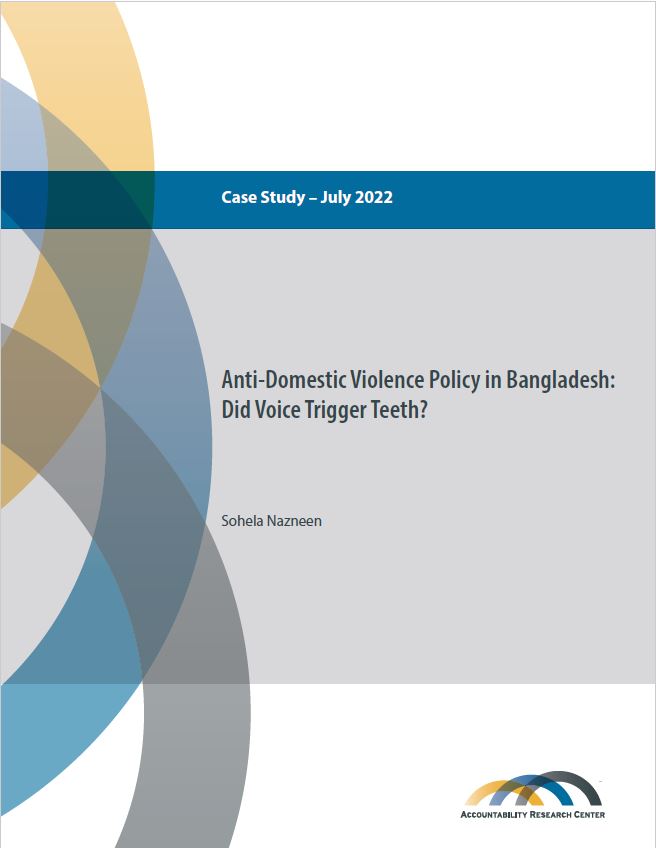
Anti-Domestic Violence Policy in Bangladesh: Did Voice Trigger Teeth?
Date: July 2022
Author(s): Sohela Nazneen
Publication type:
Published by: Accountability Research Center
“Sandwich strategies” are interactive processes in which reformers in government take tangible measures that reduce the risks of citizen action from below, driving virtuous circles of mutual empowerment between pro-accountability actors in state and society. This case study is one of a set of 18 published here, which are among those included in comparative analyses of whether and how sandwich strategy initiatives drive institutional change.
In 2010, Bangladesh enacted an anti-domestic violence law. This case study discusses the factors that triggered state actors to create an enabling environment for a policy coalition; how the coalition mobilized, took advantage of the opening space and cooperated with state actors; and the changes that resulted.
Longstanding advocacy for an anti-domestic violence law in Bangladesh gained traction after the 2009 election led to the appointment of a women’s rights lawyer and activist as Minister of Women’s Affairs, backed by the Prime Minister. Together with allies, they created institutional space for the Citizen’s Initiative Against Domestic Violence advocacy coalition of civil society actors by defining a draft law as a deliverable for a donor-funded project. This opening provided resources, research findings, legitimacy, and leverage to the coalition, and helped to offset resistance from other ministries.
This newly opened space enabled advocacy with parliamentarians and government officials, a media campaign to highlight the weakness of existing laws, and numerous district level meetings with both governmental and civil society actors. The official backing of the consultation process broadened its reach and reduced the risks and costs for local civil society participation at the district level. The ruling party’s two-thirds majority limited the need for compromises with the opposition, leading to the 2010 Domestic Violence Act, which recognized new rights and the state’s obligation to protect women in their homes.
Since then, implementation has been under-funded and resisted by elements in the government. But the Ministry of Women’s Affairs has both sustained the law, and supported the monitoring of implementation by the advocacy coalition.
